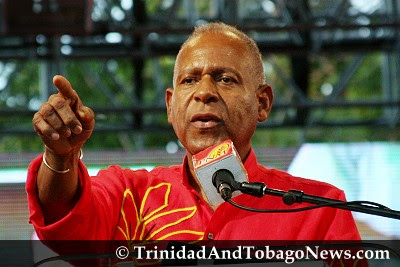The High Court in Trinidad & Tobago on Thursday ruled against Attorney General Faris Al Rawi in the challenge to the constitutionality of the Commissioner of Police and Deputy Commissioner of Police (Selection Process) Order 2015 brought by retired police inspector Mr. Harridath Maharaj, who was represented by the Honourable Kamla Persad Bissessar S.C. and former Attorney General Anand Ramlogan S.C.
This was the first law passed by Al Rawi. The UNC Opposition had warned that the legislation was a dangerous development that would constitute a threat to democracy. Its argument was that the PNM government was creating a mechanism whereby it could exert political influence and pressure on the appointment of the Commissioner of Police and Deputy Commissioners of Police. The Opposition warned the Nation that the Government was passing an illegal law in violation of the Constitution and steadfastly opposed the Government.
The insertion of the Minister of National Security in the process was a flagrant and direct violation of the independence of the Police Service Commission (PSC) which was carefully preserved by Parliament. There was no lawful justification for this drastic step which would have compromised the transparency and fairness of the procedure for appointment and make the candidate selected open to criticism that the Government influenced the process of his appointment. AG Al Rawi was arrogant and bombastic in brushing aside the legitimate concerns of the Opposition. He said:
“We faced the polls. The management of crime and security starts with a permanent appointment for a Commissioner of Police and we have no horse in the race. We have no one in the race. What we have is democracy, preservation of autonomy for the Police Service Commission foremost in mind. We have emboldened and empowered them to do their job. We have told them, you come up with your process and terms, all we want is the opportunity to knock on your door and say, look can you start the process? Tell us whether you will or whether you would not and we will consider what we should do after that within the confines of due process, proportionality being the driving factor….. Enough is enough. No more analysis paralysis. There has been adequate and full and complete consultation in this process and it is proportional and democratic.”
(Hansard Report; Senate - January 21st 2016.)
The AG attempted to use the time taken by the PP government for careful and detailed consultation as an excuse to ride roughshod over the Constitution and intrude upon the constitutionally protected jurisdiction of the PSC.
Today the High Court has vindicated the UNC’s position on this matter.
The Court said:
“The 2015 Order purports to place initiation of the appointment process into the hands of the Minister of National Security, a Minister of Government and part of the Executive arm of the State. However, there is no role under the Constitution, even as amended in 2006, for the introduction of a member of the Executive arm of the state in the process of appointment of the Commissioner of Police or Deputy Commissioner of Police….The 2006 amendment to the Constitution at no point expressly authorised a role for a member of the Executive (Government) to trigger the process of appointment of a Commissioner or Deputy Commissioner. To the extent that the 2015 Order purports to introduce such a role, it must be considered ultra vires the Constitution. There is no reason in logic why an independent Police Service Commission cannot itself trigger the process for recruitment of a Commissioner of Police.”
The Court further held that the use of NIPDEC or a wholly-owned state company via the Central Tenders Board Act to select the recruitment firm that would interview and shortlist candidates was unconstitutional and illegal.
This amounted to “an impermissible trespass into the constitutionally vested powers of the Police Service Commission.”
The Court said it was wrong to constrain the PSC by providing for “the possibility of a wholly state-owned company being the gatekeeper of the pool of eligible candidates”.
By this convoluted process, the Government through the Minister of National Security could control and influence the entire process. The Minister of National Security became the “trigger-man” and a wholly-owned state company could be used to interview and shortlist candidates for the consideration of the PSC.
The Judge said “if some of the persons from whom it can select for appointment or nomination for appointment, are outside of its control, or even potentially outside of its control, or even knowledge”, that was an impermissible encroachment of the jurisdiction of the PSC. The Court has made powerful declarations to remove the political tentacles of the Government from the appointment process and ensure that there is transparency and integrity in the appointment of the Commissioner and Deputy Commissioners of Police.
This insidious attempt by the PNM government to derail and override the Constitution and tamper with the jurisdiction of the PSC represents a sinister and ominous desire to control the Police Service in the face of several landmark judgments from the Privy Council that expressly warn about the dangerous consequences of such action.
To allow any Government to control the appointment process by inserting the Minister of National Security and using a wholly state-owned enterprise to interview and shortlist candidates would be reckless and would undermine the constitutional protection given to the public and convert the Police Service of the State into a private political army which is beholden to the Government of the day.
The court ordered that the Attorney General pay the Applicant’s costs.
(Media release from the Office of the Leader of the Opposition)
RELATED: OPPOSITION WANTS AG FIRED





















